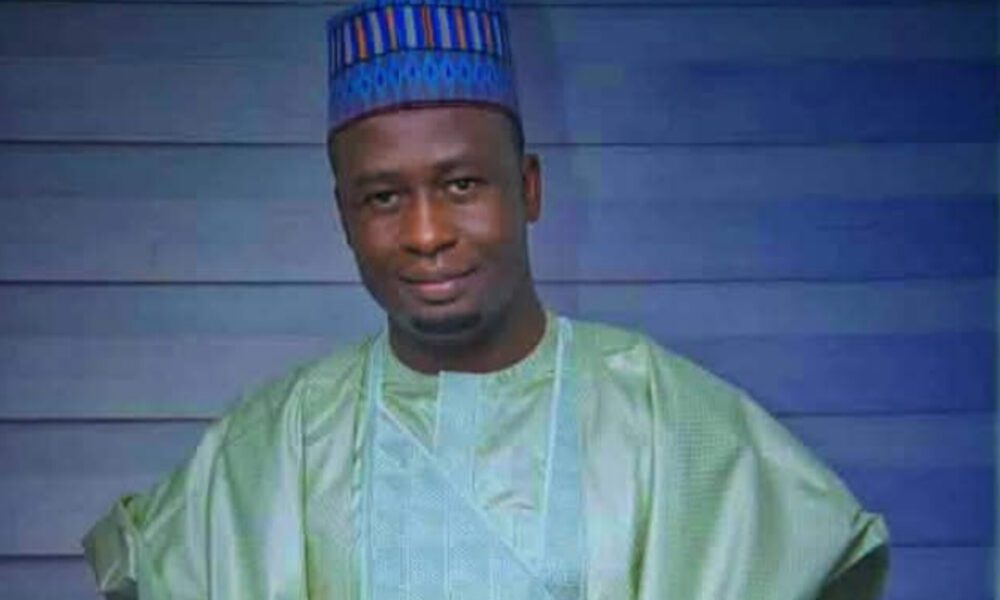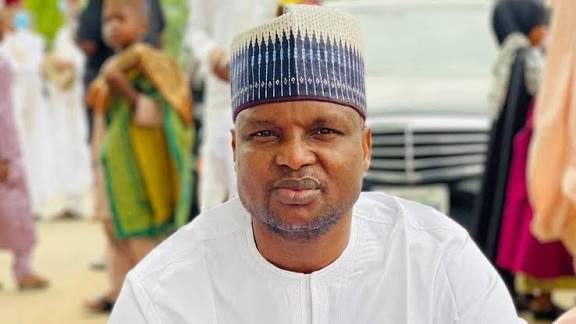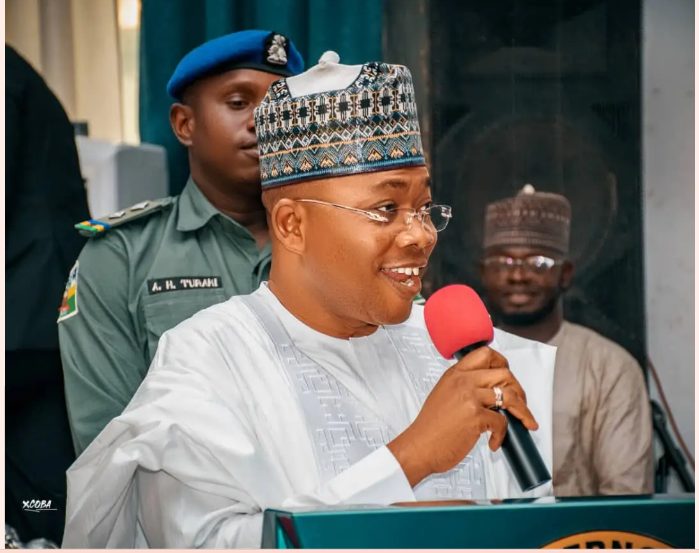By Fred Itua
Crusoe Osagie, the mouthpiece of Godwin Obaseki, has once again exposed himself as nothing more than a desperate liar scrambling to whitewash eight years of abject failure. His latest outburst against Governor Okpebholo is not just laughable—it is the last kick of a drowning man trying to defend a political disaster.
Let’s be clear: Obaseki’s reign was a catastrophic betrayal of the people of Edo State. And Osagie, his attack dog, is nothing but a paid town crier peddling falsehoods in broad daylight.

Who is Crusoe Osagie, and why should anyone take him seriously? The former head of government media, who was often evasive, too busy to engage with journalists except when money is involved, and rarely available to highlight the administration’s ‘achievements’, has suddenly found his voice. Now, he appears to be an attention seeker—a political opportunist in search of relevance.
This is the same man who, in 2016, swore on his ancestors’ grave that Senator Adams Oshiomhole’s vision must be sustained through Obaseki. The same Osagie who, in 2020, turned around and called Oshiomhole all sort of unprintable names. Today, he is singing another tune because he has lost relevance.
Let’s break down the nonsense Osagie is laboring hard to sell.
1. Why is Obaseki Afraid of an Audit?
If Obaseki has nothing to hide, why is he so terrified of assets verification? Why is Osagie screaming like a guilty child caught stealing meat from the pot? Governor Okpebholo is simply asking for a review of how Edo’s assets were handled. But instead of providing facts, Osagie is jumping like a rattled rat.
We all know why.
The so-called “private-sector investments” were nothing but a front for Obaseki and his cronies to grab State assets. Lands meant for the public were cornered by friends of government under the guise of development projects.
The Benin Central Hospital was not just shut down—it was looted and converted for Obaseki’s selfish ambitions. What exactly is Obaseki hiding? Crusoe Osagie, go and tell your boss that no amount of wailing will stop the truth from coming out.
2. Osagie, You Want to Talk About Governance? Let’s Talk!
Osagie claimed that Okpebholo has failed in 90 days. Did he forget that his boss, Obaseki, spent his first tenure blaming Oshiomhole for everything under the sun? It took Obaseki two years to build a single road, yet Osagie wants us to judge Okpebholo in three months?
Obaseki spent eight years running Edo like a private empire, disrespecting elders, sidelining lawmakers, and fighting everyone.
Under Obaseki, public servants were treated like slaves—civil servants went years without promotions, and pensioners were left to die in frustration. Yet Osagie wants us to clap for failure. Never!
3. Benin Central Hospital: A Monument to Obaseki’s Wickedness
Osagie had the audacity to justify the destruction of the Benin Central Hospital. According to him, a renowned, historic hospital was shut down so that Obaseki could build a museum. A museum!
So, in Obaseki’s mind, tourists are more important than sick Edo citizens? Instead of fixing the health sector, he turned hospitals into political projects for his godless agenda.
Stella Obasanjo Hospital was underfunded, yet Osagie wants us to believe that Edo’s healthcare improved? This is pure wickedness. And only a soulless propagandist like Crusoe Osagie would dare to justify it.
4. Edo’s Debt Crisis: The Lies and the Facts
Crusoe assumed Edo people have forgotten? Let’s talk about the debt mess that his boss left behind.
Edo’s debt skyrocketed under Obaseki because he accessed reckless loans under the guise of investments. The State’s revenue remained stagnant, meaning Obaseki was borrowing money with no plan to pay it back.
Osagie wants us to believe that currency fluctuations are to blame? Then why are other States managing their finances better? Obaseki left Edo drowning in debt, and you think we will let that slide?
5. Radisson Hotel Scam—A National Disgrace
We have not forgotten about the Radisson Hotel scandal. Obaseki dubiously accessed State funds, built a hotel, and then handed it to “private investors.” Who are these investors? What process was used in selecting these briefcase investors? Why was Obaseki in a dubious hurry in the twilight of his satanic administration to conclude the hostile sell-off?
This was another well-orchestrated heist. But Edo people are watching.
6. The Betrayal of Edo Youths
Since Osagie loves to talk about governance, let’s talk about how his boss betrayed Edo youths.
He promised jobs, but delivered mass unemployment—the so-called EdoJobs program was a joke. He destroyed transport unions, leaving thousands of young people stranded without work. He turned Edo into a land of suffering while his own family and friends enjoyed State resources.
What legacy are you defending, Osagie? The legacy of hunger, hardship, and hopelessness?
Crusoe Osagie is nothing but an irresponsible, shameless and a political jobber trying to remain relevant. Known among journalists in Edo State as a petty tyrant who turned the Government House Press Unit into his personal estate, and used government powers to suppress and oppress them, his rant against Okpebholo is not about Edo—it is about his desperation to keep eating from Obaseki’s stolen wealth.
But Edo people have moved on. The era of lies is over. The era of propaganda is over. The era of deception is over and never again will Edo State experience an Obaseki nor Edo Journalists come in contact with an Osagie Crusoe – the sadist, kleptomaniac attack dog of a failed governor
*Crusoe can cry from now till 2027, but Obaseki’s legacy remains what it is: a complete disaster.*
*Fred Itua is the Chief Press Secretary to Edo State Governor.*




